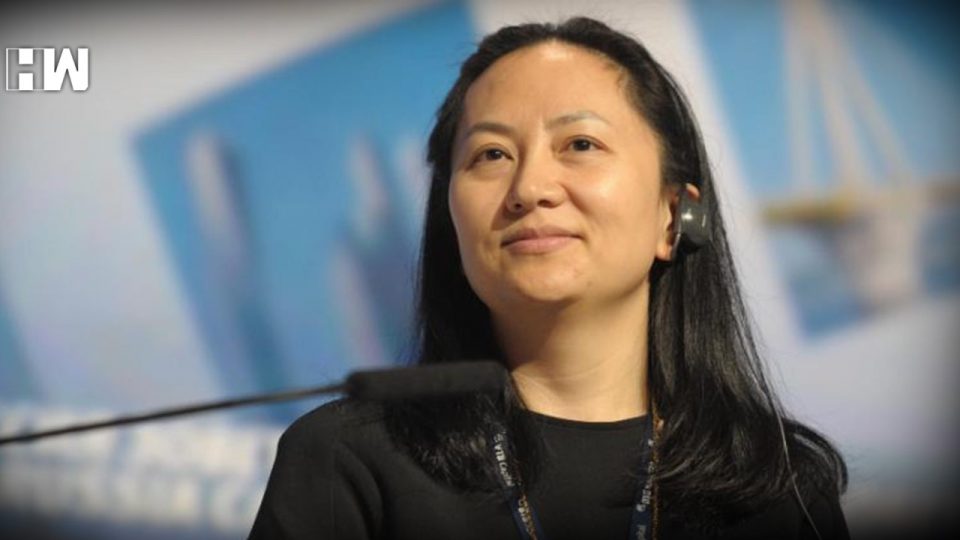Vancouver | A Canadian prosecutor urged a Vancouver court to deny bail to a Chinese executive at the heart of a case that is shaking up US-China relations and worrying global financial markets. Meng Wanzhou, the chief financial officer of telecommunications giant Huawei and daughter of its founder, was detained at the request of the US during a layover at the Vancouver airport last Saturday — the same day that Presidents Donald Trump and Xi Jinping of China agreed over dinner to a 90-day ceasefire in a trade dispute that threatens to disrupt global commerce.
The US alleges that Huawei used a Hong Kong shell company to sell equipment in Iran in violation of US sanctions. It also says that Meng and Huawei misled American banks about its business dealings in Iran. The surprise arrest, already denounced by Beijing, raises doubts about whether the trade truce will hold and whether the world’s two biggest economies can resolve the complicated issues that divide them.
“I think it will have a distinctively negative effect on the US-China talks,” said Philip Levy, senior fellow at the Chicago Council on Global Affairs and an economic adviser in President George W Bush’s White House. “There’s the humiliating way this happened right before the dinner, with Xi unaware. Very hard to save face on this one. And we may see (Chinese retaliation), which will embitter relations.” Canadian prosecutor John Gibb-Carsley said in a court hearing on Friday that a warrant had been issued for Meng’s arrest in New York August 22. He said Meng, arrested en route to Mexico from Hong Kong, was aware of the investigation and had been avoiding the United States for months, even though her teenage son goes to school in Boston.
Gibb-Carsley alleged that Huawei had done business in Iran through a Hong Kong company called Skycom. Meng, he said, had misled US banks into thinking that Huawei and Skycom were separate when, in fact, “Skycom was Huawei.” Meng has contended that Huawei sold Skycom in 2009. In urging the court to reject Meng’s bail request, Gibb-Carsley said the Huawei executive had vast resources and a strong incentive to bolt: She’s facing fraud charges in the United States that could put her in prison for 30 years.
Meng’s lawyer, David Martin, argued that it would be unfair to deny her bail just because she “has worked hard and has extraordinary resources.” He told the court that her personal integrity and respect for her father, Huawei founder Ren Zhengfei, would prevent her violating a court order. Meng, who owns two homes in Vancouver, was willing to wear an ankle bracelet and put the houses up as collateral, he said. There was no bail decision by the judge on Friday so Meng will spend the weekend in jail and the hearing will resume Monday.
Justice William Ehrcke said he would think about proposed bail conditions over the weekend. Huawei, in a brief statement emailed to the AP, said that “we have every confidence that the Canadian and US legal systems will reach the right conclusion.” The company is the world’s biggest supplier of network gear used by phone and internet companies and long has been seen as a front for spying by the Chinese military or security services. “What’s getting lost in the initial frenzy here is that Huawei has been in the crosshairs of US regulators for some time,” said Gregory Jaeger, special counsel at the Stroock law firm and a former Justice Department trial attorney.
“This is the culmination of what is likely to be a fairly lengthy investigation.” Meng’s arrest came as a jarring surprise after the Trump-Xi trade cease-fire in Argentina. Exact details of the agreement are elusive. But the White House said Trump suspended for 90 days an import tax hike on USD 200 billion in Chinese goods that was set to take effect January 1; in return, the White House said, the Chinese agreed to buy a “very substantial amount of agricultural, energy, industrial” and other products from the United States.
The delay was meant to buy time for the two countries to resolve a trade conflict that has been raging for months. The US charges that China is using predatory tactics in its drive to overtake America’s dominance in technology and global economic leadership. These allegedly include forcing American and other foreign companies to hand over trade secrets in exchange for access to the Chinese market and engaging in cyber theft.
Washington also regards Beijing’s ambitious long-term development plan, “Made in China 2025,” as a scheme to dominate such fields as robotics and electric vehicles by unfairly subsidising Chinese companies and discriminating against foreign competitors. The United States has imposed tariffs on USD 250 billion in Chinese goods to pressure Beijing to change its ways.
Trump has threatened to expand the tariffs to include just about everything China ships to the United States. Beijing has lashed back with tariffs on about USD 110 billion in American exports.
As an independent media platform, we do not take advertisements from governments and corporate houses. It is you, our readers, who have supported us on our journey to do honest and unbiased journalism. Please contribute, so that we can continue to do the same in future.

